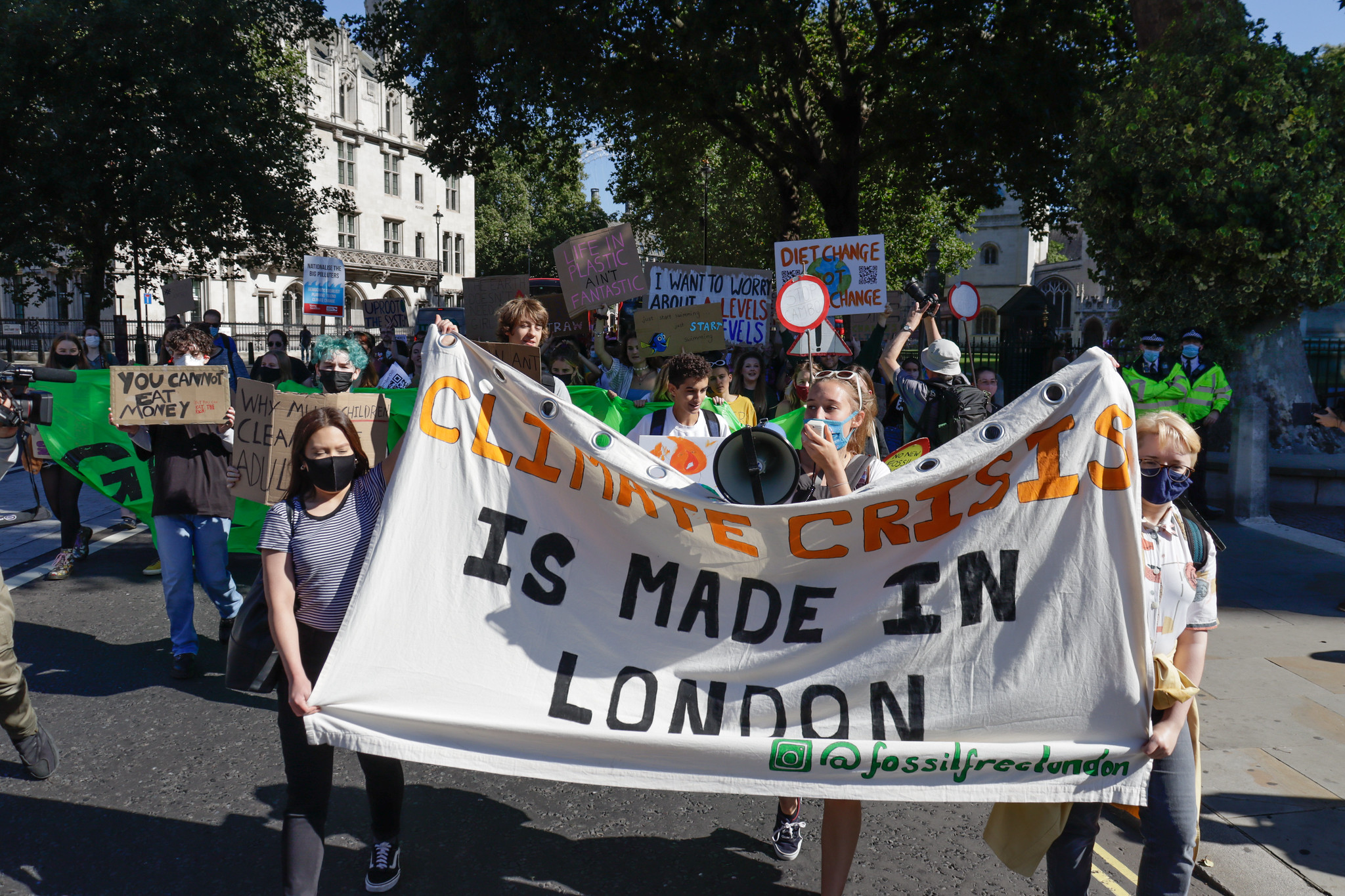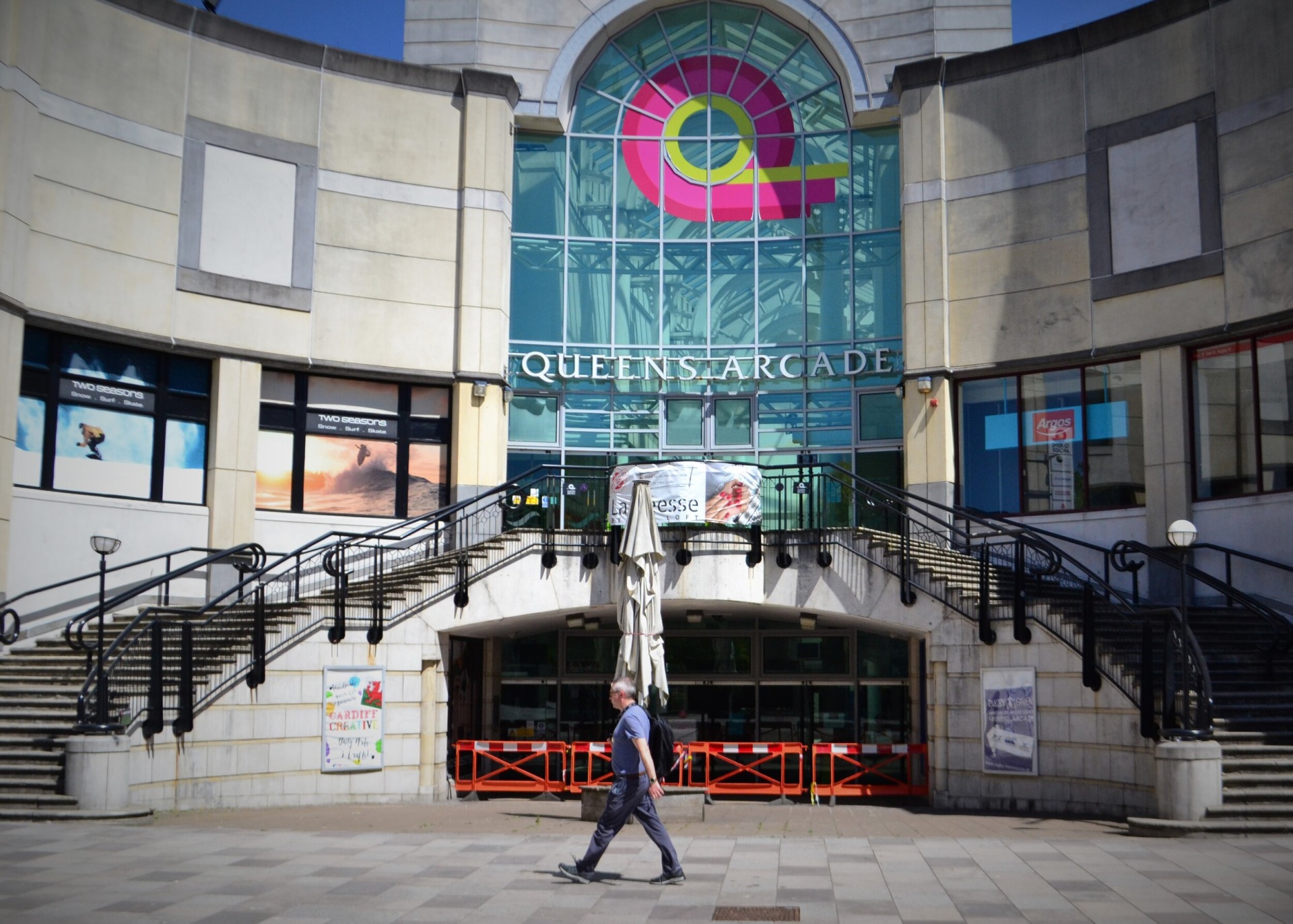
What Obama’s Failure In Copenhagen Says About COP26 & The Climate Movement Today | Jonathan Neale
I want to tell you a story about something that happened in Copenhagen twelve years ago. Partly because I was there, and I’m still mad. But mainly because it has echoes and lessons for the COP climate meetings that start in Glasgow next week.
Image: Climate protests, Sept 2021, Steve Eason
I came of age in Texas at the time of civil rights. Now I’m a climate activist in Britain. In January 2009, Barack Obama began his first term as president of the United States. I cried when I watched him speak at his inauguration, as I had cried at his speech the night he was elected.
Activists all over the world were also excited by his victory. Finally, after eight years of Bush, we had an American president who wanted to do something about climate change.
That spring some of the president’s staff called the leaders of environmental organizations from all over the United States to an off-the-record meeting in the White House. Obama did not attend. But his key environmental advisers told the assembled leaders and executives that they should make a shift in language. They should stop talking about climate change, and use the word “energy” instead. The environmental leaders understood that Obama wanted them to downplay climate change. They admired the president and wanted to help. So they complied, and suddenly we were hearing about energy, energy, energy.
The only leader at the meeting who refused to comply was Bill McKibben of 350.org, a pillar of integrity. McKibben and 350 continued talking about climate change. There the matter rested until Suzanne Goldenberg published an account of the meeting in the Guardian in 2012. [https://www.theguardian.com/environment/2012/nov/01/obama-strategy-silence-climate-change]
Had we known about that meeting in 2009, we might have been given an early warning of what was coming next.
Every year, except 2020, the governments of the world meet somewhere in the world for two weeks at the UN sponsored Convention of the Parties (COP) to decide global policy on climate change. Politicians, civil servants, scientists, environmentalists, business people and campaigners come too.
The first year of Obama’s presidency, 2009, the COP meetings were in Copenhagen. Some 30,000 scientists, experts, civil servants, campaigners, students and activists attended. I had spent much of the year organizing global protests over climate, and the march at the COP in Copenhagen was 130,000 strong, the largest climate demonstration in the world up until that time.
This COP was special that year because the Kyoto Treaty was expiring. The Kyoto agreement was the international treaty the UN had brokered in 1999. There were many flaws in it, but Kyoto had committed all the rich countries in the world to fixed reductions in their emissions. This was the treaty that George Bush, alone among world leaders, had famously refused to sign.
The climate world waited to see what would replace Kyoto. The question was how much deeper would the mandatory reductions in emissions become. There were many loopholes I n the Kyoto agreement. But everyone understood that it was a step to binding all the main emitting countries to mandatory reductions.
Many climate campaigners thought the big conflict at the talks would be between the rich countries of the North and the poorer countries of the South. The flash point would be how much aid the Northern countries, like the US, were prepared to give the Southern countries so they too could begin to decarbonize.
We got that wrong.
For the first week there was deadlock at the talks. There is always deadlock at those talks, and then it is miraculously resolved late at night on the last day, or sometimes in the early hours of the morning. On cue, President Obama was supposed to arrive on the last day, on Friday morning.
Wednesday night I went to a reception by the AFL-CIO for Nancy Pelosi, then as now the Democratic speaker of the House of Representatives. I was a union climate jobs activist, I got invited to those sort of dos. Many of the AFL and Democratic party people were fit young men and women, who had dressed up for the reception in very expensive suits and dresses. I could see the Ivy League dripping off them.
Pelosi addressed us all informally. She said we might not like what President Obama would do when he got here on Friday. But if we did get upset, we should remember that without him, none of us would be here. Pelosi was obviously preparing her people.
Uh-oh, I thought, but I still did not understand.
Friday morning Obama flew in. He had a 45-minute meeting with President Xi of China. They drew up a short agreement, which they must have prepared ahead of time. Then Obama and Xi had a two hour meeting with President Lula of Brazil, President Zuma of South Africa and Prime Minister Man Mohan Singh of India.
Lula had been the leader of the metal workers strikes that effectively ended the military dictatorship in Brazil in the 1980s. Zuma had been the leader of the military wing of the ANC, the organization that brought an end to apartheid. Singh was a more moderate man in his youth, but he was heir to the mantle of the Indian National Congress that had won independence from Britain.
Of these five men, four were from the South, and the fifth had a father from Kenya. They all agreed to the “Copenhagen Accord” that Obama and Xi had drawn up. At lunch that accord was conveyed to the delegates from all the other countries in the world, not for discussion but for approval. They approved.
That agreement was two and a half pages long. It said, simply and clearly, that there would be no mandatory cuts in emissions for any country in the world. In future every government could choose whatever increase or decrease in emissions they felt like.
Obama had not saved us. Nor had the Global South. Instead, those five men were the instruments of our destruction.
Leaving Copenhagen early that evening, I was standing in the airport ticket line behind a former director of one of the largest environmental organizations in Britain. He did not recognize me, but I recognized him.
He was crying. He flourished three pages of paper, and said he had managed to get a copy of the accord. “It’s shit,” he said, shaking the paper and crying again. “It’s shit.”
He was a middle-aged man who had spent all his life trying to save the planet.
I read the three pages of paper quickly, sick at heart. It was so simple, so clear, so blatant, no attempt at hiding what they were doing.
I passed the pages back to him. “It’s shit,” I said.
“It’s shit,” he said again, shaking with rage. Then he turned away. Maybe he didn’t want to share his feelings with a stranger any longer, or maybe he did not know what to do with his anger and despair. I did not intrude any further.
The environmentalist in the line never said it was shit in public. Some environmental organizations hailed the result of Copenhagen. More organizations said they were disappointed in the accord, but at least there had been international agreement and we had all moved a step forward.
Almost none of us believed that. Two pieces of evidence made that clear. One was that the big environmental organizations moved on from climate campaigns to doing something else. The other was that the marches we organized grew tiny. Everyone, the leaders and the rank and file, knew that hope had suffered a historic defeat. It would be four more years before anti-pipeline protests by indigenous First Nations communities in Canada showed us a way for grassroots revolt, and the movement again began to grow.
That was twelve years ago. Now we are approaching another key COP in Glasgow. In Copenhagen the movement was surprised and demoralized. This time round we know going in that it is going to be a shitshow.
This is supposed to be the COP where the governments all deliver new promises on emissions that will make it possible to hold the temperature rise to below 1.5 degrees. The promises are coming in now. Even if they kept their word, there is no way those promises would keep us below 2.5 degrees. Probably it will be much worse.
Biden has folded before the COP, and will come to Glasgow to announce no significant new action. This time round President Xi and President Putin will not even bother to come.
But this time round is different. We have had XR. Much more importantly, we have had a global movement of strikes by school students. Strikes are an old weapon of the working class, and they are acts of defiance. The student strikes are a historic step in two other ways. Until now the climate movement has almost always mobilized minorities. The students are aiming for majorities in their schools. And this is the entry into history of a new generation, far more radical than their elders on almost every issue.
So strike next week if you can on November 5th. Demonstrate on Nov 6th. And fight like hell for the living after COP26 ends.
Jonathan Neale’s latest book, Fight the Fire: Green New Deals and Global Climate Jobs, can be downloaded for free as a pdf or an ebook at https://theecologist.org/fight-the-fire. The paperback can be bought via https://resistancebooks.org/product/fight-the-fire/. @JonathanNealeA1.


The Mayhill Rioters Knew Their Future Was Bleak, Is It Any Wonder They Kicked Off? | @phased_bemused